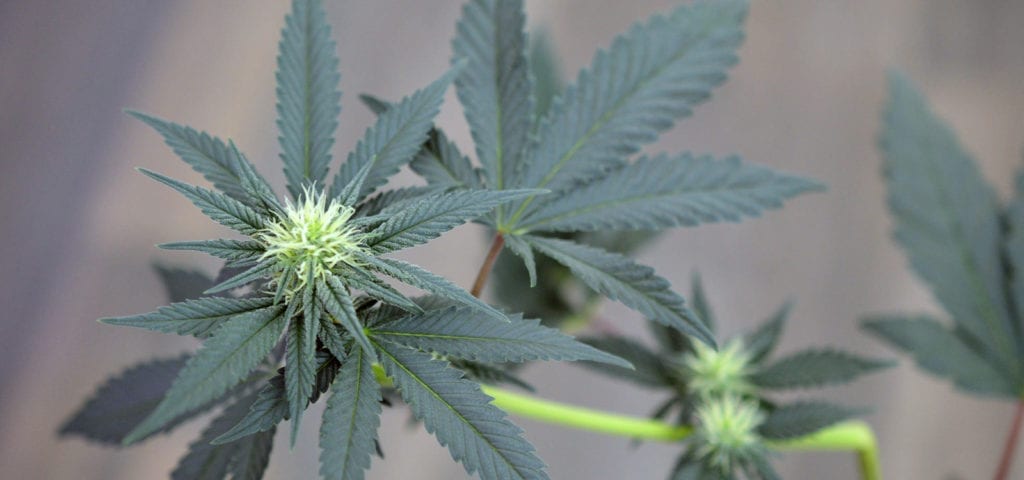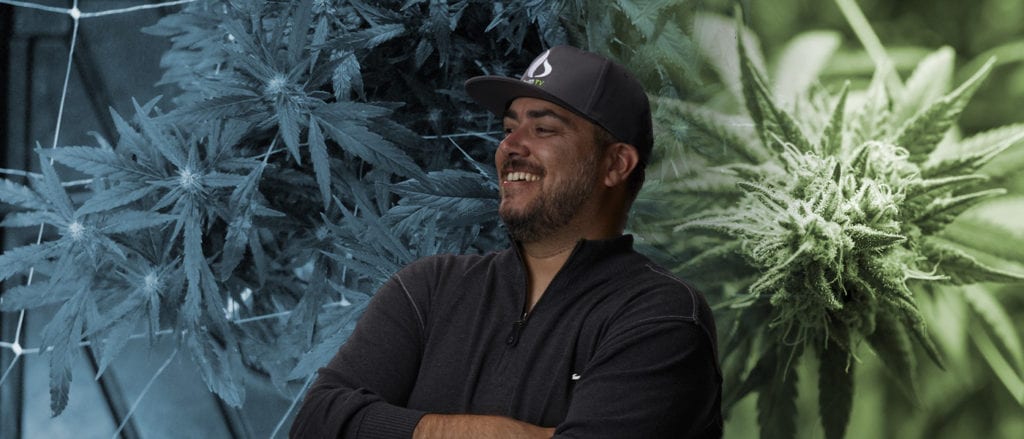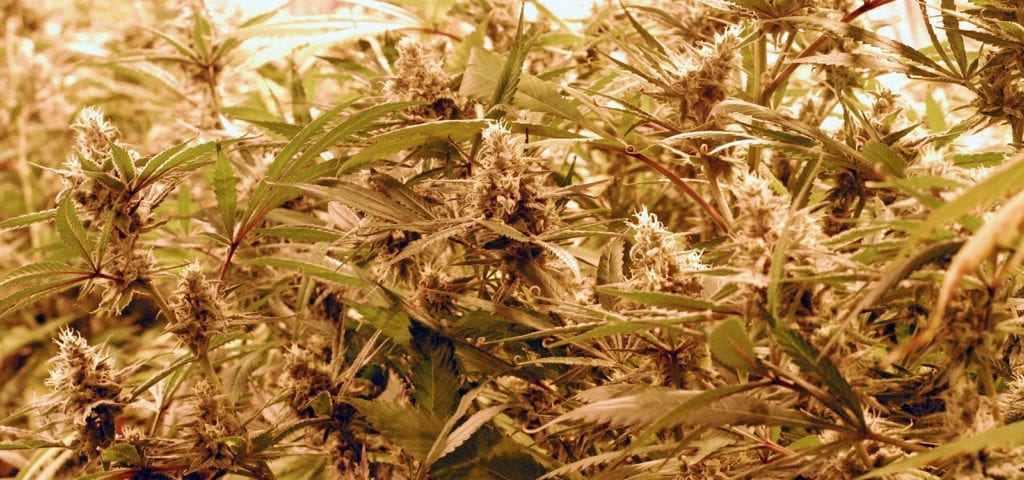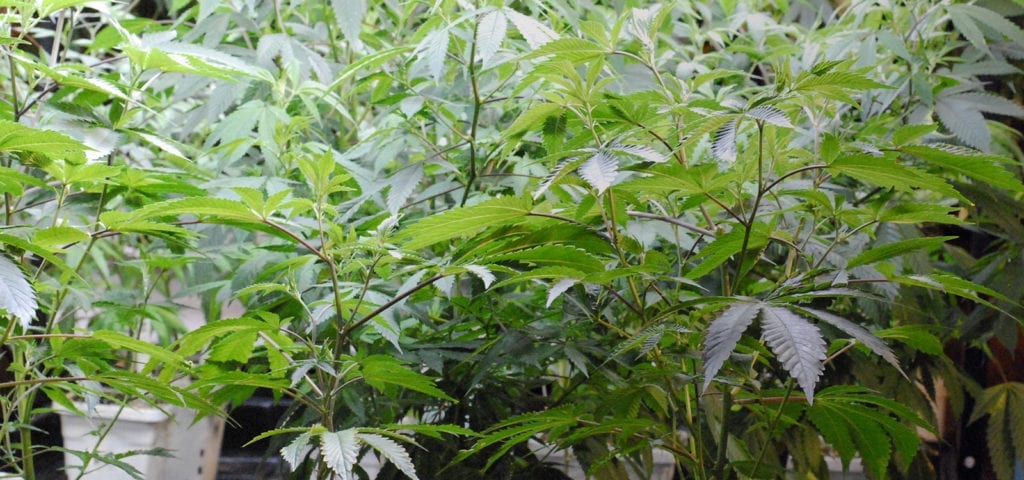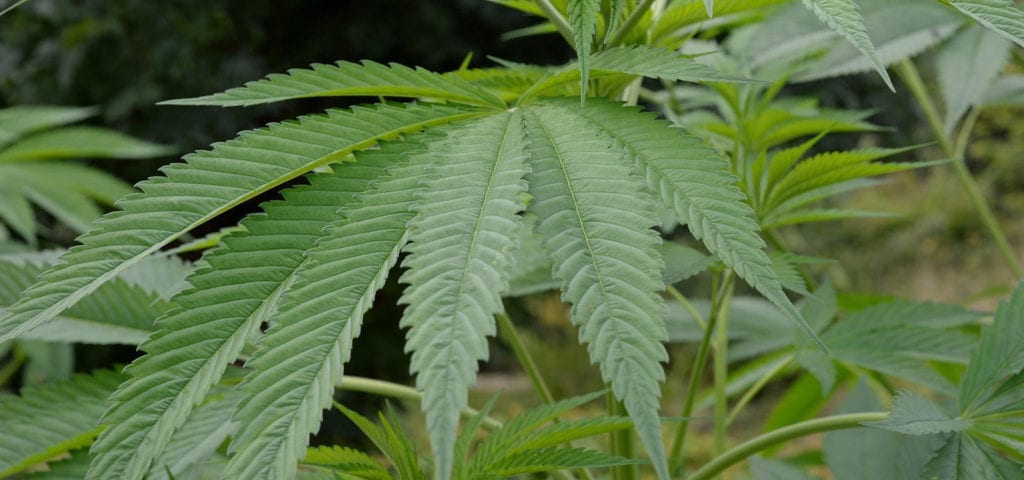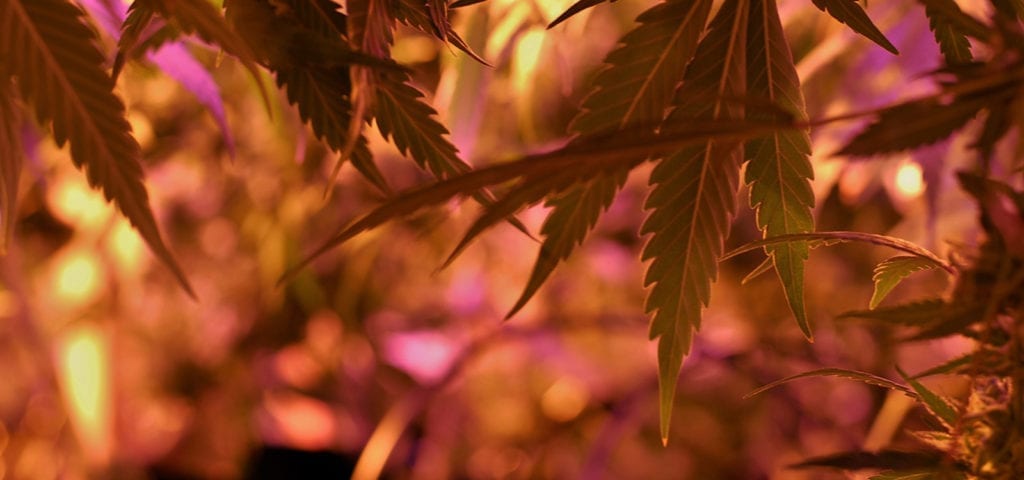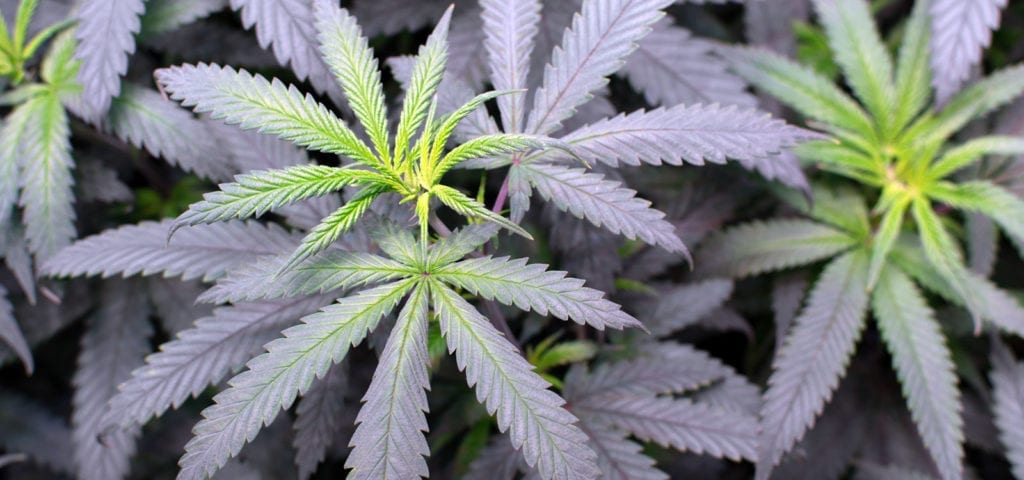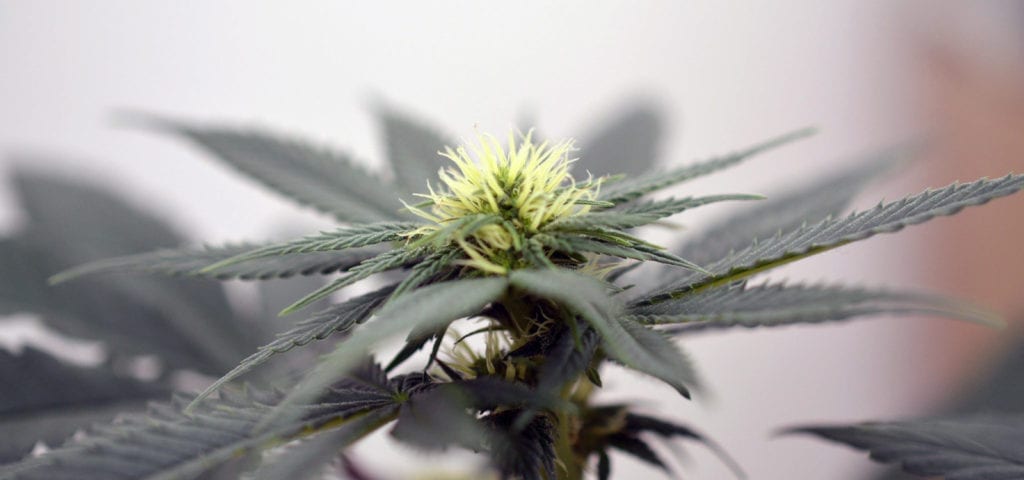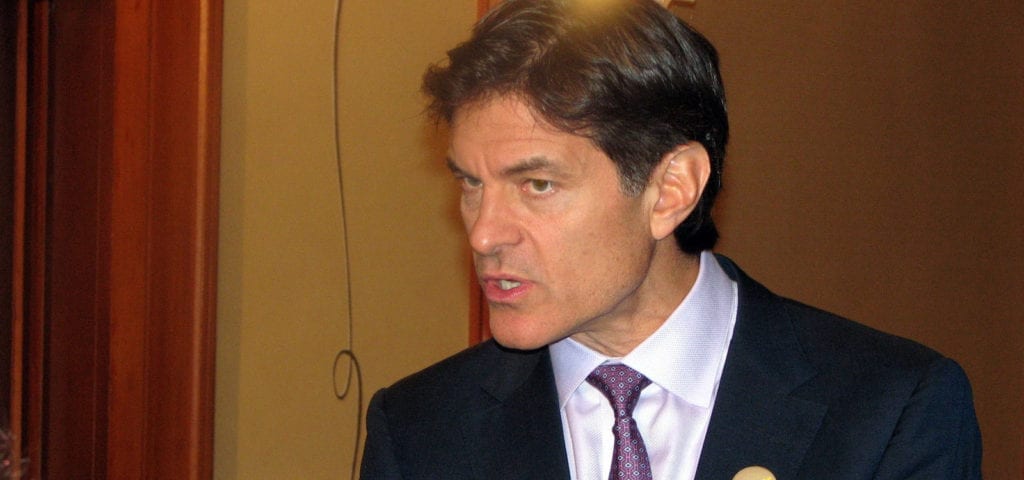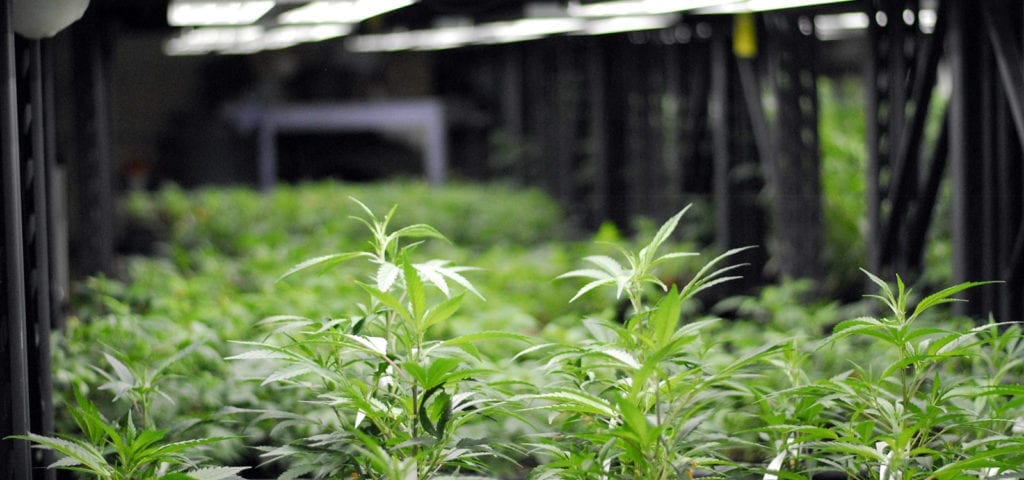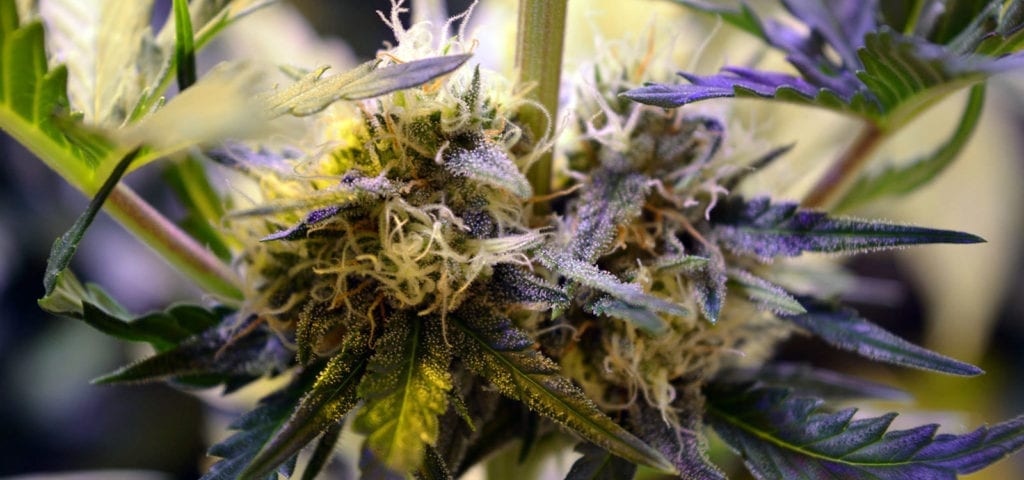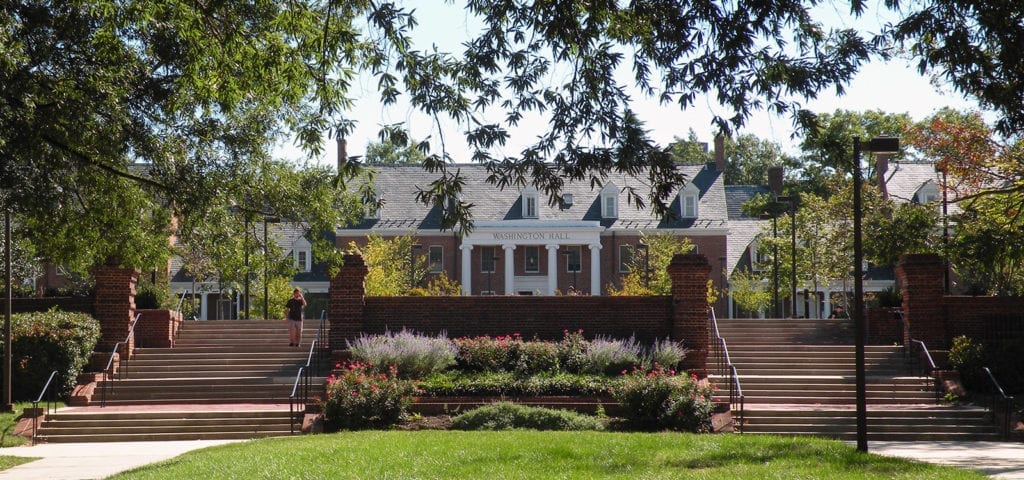Jason Santos is the CEO of Burn TV, a video/music network that was founded to help bridge and eliminate the gap between cannabis culture and the mainstream media.
In this Ganjapreneur.com podcast interview, Jason joins our host TG Branfalt to talk about his early forays into the cannabis industry, the important role that independent media groups play in this space, how cannabis is portrayed in the mainstream media — and how that affects cannabis enthusiasts and the movement as a whole — and much, much more!
Tune in via the media player below, or keep scrolling down to read a full transcript of this week’s Ganjapreneur.com podcast episode.
Listen to the podcast:
Read the transcript:
TG Branfalt: Hey there, I’m your host TG Branfalt. You are listening to the Ganjapreneur.com podcast. Where we try to bring you actionable information to normalize cannabis through the stories of Ganjapreneurs, activists, and industry stakeholders. Today, I’m joined by Jason Santos, CEO of Burn TV. Super excited for this Jason, we got a lot to talk about, from one media guy to another. But, lets jump right into this.
What’s your background, man? How did you get into the cannabis space?
Jason Santos: Well, first off, it’s great to be here. So, thanks for having us on the show. As far as cannabis goes, I was originally in the real estate space. I was flipping houses, and doing things like that. I saw an opportunity to kind of bring my consulting and business back down into the cannabis space as a way to kind of supplement my real estate business. I was paying cash for houses, and things like that. I wanted to have some kind of residual income, so I can continue to put more money to work in the space.
But, honestly, within a few months of being in the space, I had an encounter with a medical patient that pretty much shifted my focus to be on the cannabis industry permanently. I kind of started pulling back from the real estate stuff, and went all in on the industry, realizing how important it was.
TG Branfalt: You want to tell me a bit more about the meeting with that patient, and why that changed your mind in the way that it did?
Jason Santos: It was probably in the first 60 – 90 days of kind of being around the industry. I was consulting in managing a dispensary in Hollywood. We had a patient come in, she was in her 60’s, 70’s. And very anti-cannabis her whole life. Had just recently tried to commit suicide from trying to escape the pains and trauma of liver cancer.
She had something like 15 or 16 surgeries. And went from like an everyday walk around weight of around 140, down to the low 80’s. And was just in so much
pain and misery, that she just didn’t want to continue.
When that failed, her daughter finally convinced her to try cannabis. Like, what do you have to lose? I guess, they made something, or a friend of theirs, or someone made something like on a stove and she responded well to it. But they wanted to get into things that were a little more controlled, so they came to our shop.
She didn’t want to smoke it. So, I started putting together a bag of things for her to try in terms of edibles and things like that, that made sense for her. Went to give it to her, it was probably $150, $200 worth of product. She said she only had $40. I was like, “Well, I don’t even want your $40. Just keep your $40 because you’re not going to need to spend probably more than $20 when you go into a shop. Just take all these, figure out what works for you. So, the next time, you know what you need.”
For me, it didn’t seem that big of a deal. But, what I didn’t realize was how important that was to her, and what that meant to her because what that actually meant to her was not money. It was breakfast with their grandkids. This wasn’t probably going to save her life, or change her condition at the stage that she was at. But, it meant not being in a vegetative state, being bed ridden.
It meant sitting up at the breakfast table, and enjoying the last few days of her life, or months, or years. Whatever she had with her disease, with her family. And feeling better.
She held me for probably five, ten minutes in the middle of my store just bawling. That was the moment my life changed, right there. I pulled all my money, that day. I called my contractor, and my realtor was also my aunt. And pulled all the money from a job I was doing on a house, and decided I’m going all in on the industry.
TG Branfalt: That’s a really touching story. You cover a lot of these sort of stories in what you’ve done with Burn TV thus far. But, before we get into that, why did you end up launching Burn TV?
Jason Santos: Well, you know, I was always a business man and an entrepreneur and things like that. The one thing that I didn’t like about the industry was, even though I had the mind set of wanting to set the bar, or be the gold standard. The places that I was managing, we didn’t even have green signs.
Everything was white, there was no imagery of cannabis. We made everything above and beyond regulations, but no matter what we did at the level, here in California especially, they can take it away any day. There was … It wasn’t helping move the industry forward.
So, I saw an opportunity to do something bigger for the industry. I felt there needed to be a bigger shift. I didn’t see anyone doing it in a way that could provide that shift for the industry. I sought out to build something that could become the voice of an industry, that can start to bridge the gap between not only cannabis community, and the movement. But also main stream acceptance and audiences.
TG Branfalt: So, I wanted to talk to you a bit about cannabis and the media, historical context, the evolution. Weeds was really one of the first cannabis centric shows to gain mainstream exposure. Now, we’re seeing cannabis focused episodes of The Simpsons, Family Guy, we’ve got Sanjay Gupta had a whole special on medical cannabis.
This isn’t shocking to me anymore. But when Weeds first came out, I was surprised it was greenlit. Because of canna-bias in the media. Cannabis has always played a huge role in music, The Beatles got high. But TV is a whole different animal. Do you think that the modern portrayal of cannabis on television helps or harms activists’ efforts?
Jason Santos: It’s a little bit of both to be honest with you. It all depends on how it’s portrayed. There’s a lot of content that’s still focused on old stereotypes.
TG Branfalt: Such as Weeds.
Jason Santos: Yeah. Weeds was a little bit different, because it was at least … It was like a comedic sitcom style, “dramedy” type show. Right? Whereas I see shows that discovery has done some shows where, it’s … They really kind of made a mockery of what’s going on. They want to make everything cops versus robbers. You know?
I felt, for me sometimes, for every good piece of information they’ll have in one of those shows like Weed Wars or Weed Country and things like this. Where they’ll have a great shot of how it’s helping someone, they’ll do some cheesy network garbage. Where it’s got to be a cops versus robbers scenario. In fact, one of my executives here is the creator of Weed Country. If you saw what the show was before Discovery got it, you’d see how different the show was.
So, there’s a lot of stereotypes and false drama that gets forced into some of the content that’s actually making it out on mainstream. But … While it’s good that more gets out there, there’s some of it kind of road blocks a little bit of the positive impact it could have. It should be doing more.
TG Branfalt: What about shows like The Simpsons, Family Guy, that are geared towards adults. A lot of adults understand what cannabis does do, and how it’s portrayed on those shows where it makes you laugh, or makes you peaceful. But, at the same time, those shows are also watched by children who might not understand yet what cannabis actually is.
What’s your take on sort of those more mainstream shows, that aren’t necessarily cannabis centric, but do focus on cannabis in some of their episodes?
Jason Santos: The way I look at it is this. If a parent has an issue with that as a subject matter, being on those shows. Then they should pretty much have an issue with that show in total. Because those shows push alcohol, drunks, violence, stereotypes, racism. It’s part of their humor.
In the scope of what those shows already display in terms of their general subject lines, cannabis is actually relatively mild. Ironically, cannabis is probably the only subject line in all of those controversial subjects that they’ll explore in comedy, that actually has a benefit to people under the age of 18. It’s been used in a medicinal, and a very impactful way, that is positive.
Whereas, there is no use for alcohol, or tobacco, or violence, or racism, all the other stuff that’s in those punch lines. I love all those shows. I think they have a great take when they take on subjects like this. I think it’s great for the industry.
But, at the same time, if a parent is going to have a concern about a cannabis storyline in that show, they should probably just be generally not letting the kids watch that show overall because there’s way worse subject matters that come up.
TG Branfalt: A lot of what you’re focused on with Burn TV is music. As I said earlier, The Beatles got high and that’s going back to the 60’s. Where do you see cannabis’ place in modern music?
Jason Santos: Well, if you talked to anyone who is inside music, any musician, anyone who works in the industry, they’ll all tell you it is just entwined in that culture, in that genre, in that industry up and down. It doesn’t matter what genre of music it is, it’s part of what they do.
You know, cannabis can be a very creative inspiration for these guys. Relax … There’s a number of reasons why people smoke weed. But, for us, the main connection of music isn’t even necessarily the cannabis connection. It’s that music fits side by side with cannabis, but also the big part about music for us is that it’s universal. You don’t have to like cannabis to like music.
The music that we’re embracing is just music, it’s not weed music. Right? You don’t have to be a fan of cannabis to be a fan of music. That’s kind of the whole theme of our platform, is we’re building an entertainment portal that is embracing cannabis. But we’re not just another weed channel. Music is a big part of the unification that we want to do to bring people that were over here. Maybe they use cannabis, but aren’t really engulfed into the lifestyle, but want to be exposed to other products. Maybe they have no interest in cannabis, or maybe they’re a heavy cannabis user.
Either way, they’ll still enjoy the music content. Like I said, it’s obviously got a massive long term connection with cannabis in general. It’s a perfect fit for us.
TG Branfalt: Tell me a little bit more about how you plan to create this platform that appeals to a broader audience than cannabis users.
Jason Santos: The main focus here is we’re not building a weed channel. We’re building a platform that fully embraces it, like I said. Gives it all the same business opportunities. But, the main focus here is on entertainment. To be an entertainment destination for the cannabis community, and other people who are attracted to this type of genre of entertainment around music, comedy, adrenaline lifestyle as well as cannabis.
While there will be a lot of high level cannabis themed content on the network. Most of our content won’t have anything directly to do with cannabis, but will be applicable content to the demographics around cannabis. The full scope of demographics.
Today, there’s this small niche of people who really like dab videos, or product show cases, or this or that. But, there’s another huge part of this demographic, that even when there’s good content out there, they won’t necessarily go look for it because they don’t want to be associated with that stoner stereotype anymore than a wine drinker wants to be associated with an alcoholic. In their mind, it has the same negative stigma.
So, even when brands are doing great content, there’s a lot of people inside this demo that just don’t see it. We wanted to normalize the content, we wanted to deliver what’s familiar to them. In all the other types of content they like, so they can be exposed to brands and products in a piece of content around music, or a comedy stand up special that has nothing to do with cannabis. But, maybe there’s a promo, or sponsor, something.
They shouldn’t have to watch heavy cannabis themed content to get exposed to other products and brands in this industry. We wanted to build this broader platform, so other people can feel safe and come to this network and engage in content without feeling like they’re somewhere they’re not comfortable.
TG Branfalt: You know, that’s a really remarkable sort of vision to have as a lot of companies would take an entirely different approach. And want to maybe monetize those dab videos or something like that. I want to talk to you a bit more about the role of independent media in the cannabis space. But, before we do that, I’ve got to take a short break.
This is the Ganjapreneur.com podcast, I’m TG Branfalt.
Commercial: If you are looking for a job in the rapidly growing and highly competitive cannabis industry, Ganjapreneur.com is the place to look. Visit the Ganjapreneur job board today to browse current openings with cannabis companies throughout the United States. From entry level bud tender positions, to executive level career opportunities. You can also create a profile, and upload your resume to be discovered by cannabis recruiters. Visit our job board at Jobs.Ganjapreneur.com to create your profile today.
If you are a business owner, you can post your job openings for as little as $25 on our job board to reach the largest and most engaged audience of cannabis professionals on the web. Companies who are listed in the Ganjapreneur business directory are eligible for free job listings. If you are already signed up, contact us today, via the website or send us an email at Grow@Ganjapreneur.com to activate your unique coupon.
TG Branfalt: Welcome back to the Ganjapreneur.com podcast. I’m your host, TG Branfalt here with Jason Santos, CEO of Burn TV. So, I’m obviously working for some independent media. I have my own sort of opinions on the role that the independent media should play in this space. What is your goal or your opinion of what independent media … what role independent media should play in this space?
Jason Santos: Well, I mean, independent media is incredibly important to the cannabis sector, because it’s still so heavily blocked from mainstream media, traditional media sources. So, it’s going to take an independent media brand to really become that centralized voice in … We’re not talking about a small niche space here. I’m talking about industry that realistically is probably a trillion dollar global industry already when you factor in all the legal, illegal, and ancillary businesses all under the one thing.
So, that’s pretty remarkable that something this big doesn’t have a centralized voice. So, that independent space is going to be key in setting that up. We live in a really exciting time right now, where independent media has become very popular, very powerful, very viable, and started to develop a really big reach. There hasn’t … This is like a perfect storm of timing between digital media, distribution, as well as the cannabis space.
TG Branfalt: At the same time, you’re leveraging the Roku platform, whatever it would be called. In your quest to distribute, have you faced any push back from any of the potential distributors that you’ve approached?
Jason Santos: You know, I’ll be honest with you, I have not. Even when I’ve dealt with people who have reservations around cannabis, they’ve been incredibly enthusiastic with our brand, our brand name, our look, our approach. It’s been very welcoming. To the point where I’ve actually been quite a bit surprised. I actually expected a little more resistance, or a little more hesitation.
I mean, we’re even … Even on a small level, we were allowed to go film at one of the most iconic comedy clubs in the country, especially Los Angeles. We were the only brand that was related to cannabis they’d ever let in there. Despite repeated requests to do special events and shows there because they felt their brand was safe with our brand. That’s really the philosophy of the network. We want people to feel safe here. Whether it’s a consumer, whether it’s a non-cannabis related brand, that wants to market or advertise here, whether it’s distribution, whether it’s a venue. Whether it’s a cannabis-based company.
We want everyone to feel that they can be here, and not be off putting or off setting to what their core values are.
TG Branfalt: I’ve watched some of the videos that you guys have put out, the My Life, My Story. The portraits. These are really incredible, very deep, very moving profiles. How did you find the subject for these profiles? No how did you approach them?
Jason Santos: Well, in the My Life, My Story series, these were people we knew. We knew their stories, being around the industry I’ve got to know a lot of really good people. The Tom and two sticks one actually was brought to us, it was from a creator who wanted to do a piece with him. I believe they were going to do something at MTV or something like that, but, it just wasn’t going anywhere yet. They kind of really wanted to do a piece. So, they pitched it to us and we loved it. But, the other two were people that came from our world, that we just knew their story.
And then, on the Portrait series, there was a combination of people we knew and there was other … Couple of the people that were brought in were friends of other people we knew. When we started talking to people at the show, they were like, you got to go talk to Tony Nier. Our friends over at Jam In The Van introduced us to him, and then he was fantastic. John Sally I already knew, he’s been wanting to work with us for a while. He’s a phenomenal human being, you cannot be in the room with that guy and not have a smile on your face. That guy is just epic.
Some of our friends knew a couple of the people, and honestly it became really hard to cast because we had so many people who wanted to be part of it. We knew we wanted to do nine individual stories. This first run was difficult. We wanted to create a diversity, you know. We wanted to space them out guy, girl, guy, girl, so there was … And then different people from different walks of life.
The response was overwhelming. Since the series has come out, we’ve had a lot of other people reach out and ask us if we’re going to do more because they’d like to be a part of it or they know someone that should be a part of it.
TG Branfalt: Since you don’t have a background really in broadcast media, how difficult was it for you to produce these projects?
Jason Santos: Well, actually, I was in television production for about 4 years before I got into real estate and started to go out on my own. Worked through a few big shows, a short stint on American Idol, Weakest Link, worked on the Olympic Broadcast team. So, I mean a couple shows for USA Network. I mean, I was familiar with the process, but if you’ve seen in my signature it always says … On the bottom of my email it says, “If I’m the smartest guy at the table, I’m at the wrong table.” I firmly believe that.
So, what I did is I surrounded myself with people who know how to make really good content. So, my entire executive team comes from mainstream television production. I got an Emmy winner, these guys are producers of the biggest shows on TV. They know how to make good content.
Producing the content is actually fun and relatively easy for us because it’s passion for us. We enjoy every second of it. My guys are … I’m very blessed to have a very talented team that is capable of executing these visions.
TG Branfalt: What’s the hardest part of your job as the CEO?
Jason Santos: Honestly, the hardest part of my job is wearing how many hats I have to wear right now, just because as a start up, your boot strapped all the time because there’s so many capital needs in so many different directions. We’re not trying to build something small here. It’s really having just to take on a lot of responsibility just because we can definitely use more support staff.
But, being pulled in all those different directions for meetings, to app development, legal. I mean. It’s just … Capital raising. It’s just, it’s a never ending responsibility. You know, I work seven days a week. There’s really no days off. I always tell people, I get up early, and I go to bed late. You can call me anytime. But, it’s fun.
TG Branfalt: Then you got guys like me calling me to get you on a podcast.
Jason Santos: No, this is great. I appreciate the interest. This makes me feel like we’re doing something right, when I get interest that people want to talk to us about.
TG Branfalt: I want to talk to you a bit more about the projects you have on tap. But before we do that, we got to take our last break. This is the Ganjapreneur.com podcast. I’m TG Branfalt.
Commercial: At Ganjapreneur we have heard from dozens of cannabis business owners, who have encountered the issue of canna-bias. Which is when a main stream business, whether a landlord, bank, or some other provider of vital business services refuses to do business with them, simply because of their association with cannabis. We have even heard stories of businesses being unable to provide health and life insurance, because the insurance providers were too afraid to work with them.
We believe that this fear is totally unreasonable, and that cannabis business owners deserve access to the same services and resources that other businesses are afforded. That they should be able to hire consultation to help them follow the letter of the law in their business endeavors. And that they should be able to provide employee benefits without needing to compromise on the quality of coverage they can offer.
This is why we created the Ganjapreneur.com business service directory. A resource for cannabis professionals to find and connect with service providers who are cannabis friendly, and who are actively seeking cannabis industry clients. If you are considering hiring a business consultant, lawyer, accountant, web designer, or any other ancillary service for your business, go to Ganjapreneur.com/businesses to browse hundreds of agencies, firms, and organizations who support cannabis legalization. And who want to help you grow your business.
With so many options to choose from in each service category, you will be able to browse company profiles and do research on multiple companies in advance so you can find the provider who is the best fit for your particular need. Our business service directory is intended to a useful and well maintained resource, which is why we individually vet each listing that is submitted.
If you are a business service provider who wants to work with cannabis clients, you may be a good fit for our service directory. Go to Ganjapreneur.com/businesses to create your profile and start connecting with cannabis entrepreneurs today.
TG Branfalt: Welcome back to the Ganjapreneur.com podcast. I’m your host TG Branfalt, here with Jason Santos, CEO of Burn TV. So, tell me what you got on tap, man. Is there anything in particular that excites you as the CEO?
Jason Santos: We got a couple of really big shows in the works that I’m really excited about. We just officially closed them, we started production on one this month. The other one, we’re close to figuring out a production date. So, they’ll be coming to Burn here this calendar year. So, we’re super excited about that.
One is called Smoking With The Stars, it’s a music based show with a great … Just an incredible company called JB TV out of Chicago. We’re bringing in all these up and rising new stars in music, they play at a live venue. They sit down, smoke some weed, have an interview with Jerry who is kind of a combination of like Jerry Garcia, a skinnier Santa Claus and like everyone’s favorite uncle that you want to see at Christmas. The guy is just awesome.
They won a lot of awards and things like that, and we’re honored to have formed a partnership with them to make this great show. Then, we got another one I can’t announce yet, but we’re getting close to it. It’s an animated series that was in high demand, and it looks like we pulled it in. I’m super excited about it. The fun stuff is beginning now. The content, the creation, the creative side. It’s been a long road to get here.
That’s what excites me. Is actually going out and turning this thing on officially. I guess that’s the next big thing, is we’re going to be officially launching the network here very, very soon. We’ll be launching on approximately … It’ll be available on like 1.5 billion devices, whatever. That includes all Apple mobile, and tablets, all Android mobile, and tablets, Roku, Amazon Fire, Apple TV, and Android TV set top boxes.
TG Branfalt: What are some of the topics most important for you as the CEO to showcase?
Jason Santos: You know, stuff like Portraits was very important to us, it was the brain child of our EVP of development Dave Yach. It hit everything that we wanted to kind of start to focus on. That is, we want to really start to change the stigma of what a cannabis user looks like.
These are your friends, your family, your colleagues, your idols, your icons, your neighbors, your coworkers. It’s entwined in our society. You know, 2017, 45% of Americans, which is a record high, have tried cannabis at least once. So, that’s almost one in two people has at least tried cannabis. We’re at 40 – 45 million people who regularly use cannabis in the US alone. So, we want to start to change peoples perceptions of what a cannabis user is because there’s a lot of negative stigmas that still get associated with it. But, at the same time, the other side of it is, we want to focus on cannabis isn’t the star of the show when we do content.
A lot of people think, you just throw a cannabis theme in there and that makes it good content, it doesn’t. You know, when you watch The Hangover, you don’t watch them take shots for an hour and a half before you get to the comedy. Right? It doesn’t have to be about the weed all the time. Where weed can be a role in the show, it doesn’t always have to be the star of the show.
That’s the only way we feel that cannabis is really going to make that true cross over, and get normalized. Is when we start incorporating it into story lines, into content, where the real stars … These are the story, the comedy, the structure, whatever. It’s not always cannabis.
TG Branfalt: So, I mean, it seems to be that you never really set out to be an advocate. But here you are, advocating for normalization. Is this a role that you really anticipated when you took on this whole project?
Jason Santos: Actually, absolutely. When I had the little side business and stuff, where I was consulting and working in the industry, I just saw a lot of problems. It was never going to get to where it needed to be, in my opinion, without the right voice. I knew there was a huge opportunity in this space.
It’s the only massive industry I can ever remember in my lifetime that didn’t have some kind of media voice. Mainstream media voice. So, for us, our focus isn’t to be an advocate, but our focus is on doing this in a way that allows us to be that advocate.
So, we’ll never do something that would put the industry backwards. Everything we do is designed to move the industry forward. But, obviously, our primary focus is on entertainment and building a good entertainment brand. The side benefit of that is, if we do this right, as we sat out to do, we’re going to elevate the industry side by side with us the entire way.
Again, we’re not on a non-profit advocacy agency. But we get to be a media brand that gets to move this industry into the light. And elevate its overall perceptions.
TG Branfalt: Finally, you said the first questions I asked you. You said, you’re an entrepreneur. What advice do you have for other entrepreneurs? Not just looking to get into the cannabis space, but possibly get involved in the media aspect of it.
Jason Santos: Well, in terms of the media space of cannabis, the one major piece of advice that I would give to anyone getting into media in general, is learn how to make good media. Just throwing cannabis as a subject line on something isn’t good enough. If you really want to transcend into this industry and do something good for this industry, but also make good content that’s sustainable, and going to continue to move this industry forward, and move your own opportunities forward, just learn how to make good content.
A lot of people think that they just use a good camera, and that’s good enough. It’s like, there’s lighting, story boarding, how to tell a story, editing, color correcting. There’s a lot that goes into making a quality piece of content, small or big. Understanding how to do good content is going to be imperative as this industry grows. Because it’s going to quickly outgrow the low brow, low quality, just weak themed content.
TG Branfalt: Finally, where can people find out more about Burn TV? You had mentioned quickly what devices it’s going to be on. Where can people find everything?
Jason Santos: Well, if you go to BurnTV.com, we got a website up right now. We’ve put a morning article out, called The Morning Burn. You can also find that on the website. The website right now is scaled back, as we’re just gearing up for the full launch. So, there will be some new updates coming to the website again. It’ll be expanding.
We got a partnership with another big media brand that’s going to be powering our news, the vision that we’ll be announcing shortly. So, there will be a lot more coming to the site. But the main destination for it, will be our apps. Which you will be able to find in the iOS stores, the Android stores, Roku, Amazon Fire, Android. Those kinds of things.
Obviously, you can follow us on Instagram at @BurnTV, at Twitter it’s @BurnTVNetwork. Same thing with Facebook, it’s BurnTVNetwork. We’re always publishing content there as well. In fact, that’s what Portraits was designed for, to be short form, shareable social media content so we can get as many eyeballs on it as possible so we can start to shift perceptions.
TG Branfalt: Portraits is what really drew me in. I saw that, I saw Smallie and I’m familiar with his story of it. I was really like … I was hooked. I watched one, and then I watched the other. Then the My Life, My Story you had mentioned the two sticks. That story itself was absolutely incredible. I was sitting there like, man, sometimes I don’t want to get out of bed in the morning. And this dude is … I mean, he’s doing things that you really, really wouldn’t expect.
So, I really want to congratulate you on the content that you’ve produced thus far. It’s really engaging, really good stuff. I want to thank you for taking the time, putting on the podcast hat, and joining me on this podcast. Really good stuff. I’m really looking forward to adding Burn TV on my Roku.
Jason Santos: I appreciate it man. It’s been a pleasure to be here. I definitely appreciate the kind words, and that’s the kind of reaction that we’re focused on when we make these types of shows. And, we got a lot more exciting stuff coming, we got a lot of stuff coming in action, sports, comedy, music. All Burn original stuff as well.
Then we got a lot of really great content partners, big mainstream brands as well as a big industry cannabis brands that we’re going to be bringing into the platform as well. We’re excited to get it launched, we’re really looking forward to that next stage.
TG Branfalt: I’m looking forward to seeing the next stage man. Thanks, again, for being on the show.
Jason Santos: My pleasure. Thanks for having us.
TG Branfalt: You can find more episodes on the Ganjapreneur.com podcast, in the podcast section of Ganjapreneur.com and in the Apple iTunes store. On the Ganjapreneur.com website, you will find the latest cannabis news and cannabis jobs updated daily, along with transcripts of this podcast.
You can also download the Ganjapreneur.com app in iTunes and Google Play. This episode was engineered by Jeremy Sebastiano. I’ve been your host, TG Branfalt.
